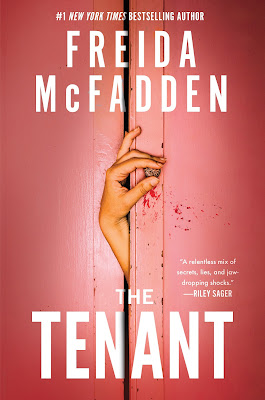Creating Stories by Hank Quense - and a Guest Post
"Starting the first draft as soon as a story idea occurs is a common mistake beginning writers make. It takes experience and patience to step back and design the story before attempting to write the draft." - from Creating Stories by Hank Quense
As someone who has been writing nearly as long as I’ve been
reading, I’ve picked up my fair share of writing guides and books (as well as taken a few writing courses here and there). I’ll be honest – I love them, from those that talk about how to outline a book to the versions that are genre-specific to those authors that discuss their writing process and how they brainstorm ideas. (And yes, part
of that is procrastinating and putting off the inevitable
butt-in-the-chair-and-write). Hank
Quense’s Creating Stories may be the most all-encompassing– and therefore my favorite.
If you’re a novice, or a struggling writer, you probably don’t realize the work you should
be doing before you ever strike a key or pick up a pen and write a word of that first draft. Have no fear.
Mr. Quense goes into every nook and cranny, starting off each chapter
with a dialogue between himself and an author (maybe you?), explaining what
lesson is to come. And what
lessons! There is a deep dive into characters (physical description, biography, their dialog, mental aspects, personality, philosophy, their arcs, their motivation, and dominant reader emotion), supporting characters, developing and constructing plots and subplots, world building, tense, and point of view. Mr. Quense even covers copyrights and stolen manuscripts and a lot more in between, as well as providing helpful links and resources.
Being a writer who has struggled between am I a plotter or a pantser, Creating
Stories provides an excellent road map to taking that writing journey with a
full tank of gas in the car and exceptional directions. Of particular interest and help to me was the
chapter in which Mr. Quense delved into the show versus tell debate. Having been critiqued in the past with a firm
admonishment that I needed to show and not tell, I appreciated (and felt
somewhat vindicated) that Mr. Quense says showing isn’t everything (I’m
paraphrasing here). Storytelling is,
well, telling and there needs to be a happy medium. Creating Stories may have completely changed
my writing game.
Chock full of vital information for the writer, yet relatively sleek in page size, Creating Stories left this writer feeling energized and ready to tackle the exciting, painful, joyous and rewarding task of writing. If
you’re a novice author, this book should absolutely, positively be on your desk
or shelf. What are you waiting for? I can't recommend it enough.
What Advice Would You Give Budding Writers/Authors? by Hank Quense
Writers:
When developing a new story, don’t start writing the first draft until you know the ending. This is essential advice because the purpose of a story is to take the reader on a journey that ends with the climax to the story. Everything that goes into the story must move the reader closer to the ending. If you don’t know what the end is, you can’t move the reader towards that point.
Pantsers argue they do precisely that: write the first draft without knowing the ending. I submit they start out that way but soon find a glimpse of where the story is going and slant in that direction.
I prefer to have a definite ending before I start writing the first draft.
Authors:
Many first time authors start by concentrating on the story while ignoring all other concerns. Usually this is because the aspiring author doesn’t understand what creating a book entails. They don’t have an inkling that this creative process involves a multi-faceted, long-term project. While they may have a vague impression that writing the book isn’t the whole project, they don’t really understand that there are five separate and distinct phases to the project:
Planning the book
Writing the book
Publishing the book
Marketing the book
Author business
Unfortunately, planning and writing the book does nothing to prepare the aspiring author for the next three phases. These three require mastering completely different skill sets.
A further complication is that marketing has to start before the book is published. While a publisher will take care of this issue, it falls on the self-publishing author to master these tasks.
My advice may seem a bit negative, but it is in the best interest of the aspiring author to understand the entire scope of the book creation process before the project starts.
There is a lot more useful content on my Writers & Authors Resource Center . Check it out!
About the Author
Hank Quense has self-published his books for over 12 years. His non-fiction books cover fiction writing (Creating Stories), self-publishing (How to Self-Publish and Market a Book, Self-Publish a Book in 10 Steps and Market It!), marketing (Book Marketing Fundamentals), and author business (Business Basics for Authors).
He also lectures on these subjects in schools, libraries, and on webinars.
Hank recently started https://hankquense.podia.com/ The site provides solutions to pain points (problems) for fiction writers, self-publishing authors and authors who are trying to market their books.
Connect with Hank on his website, Twitter (X), Facebook, Pinterest, YouTube, BookBub, and Goodreads.
Enter the Giveaway
CREATING STORIES Book Tour Giveaway (gleam.io)

.jpg)




Comments
Post a Comment